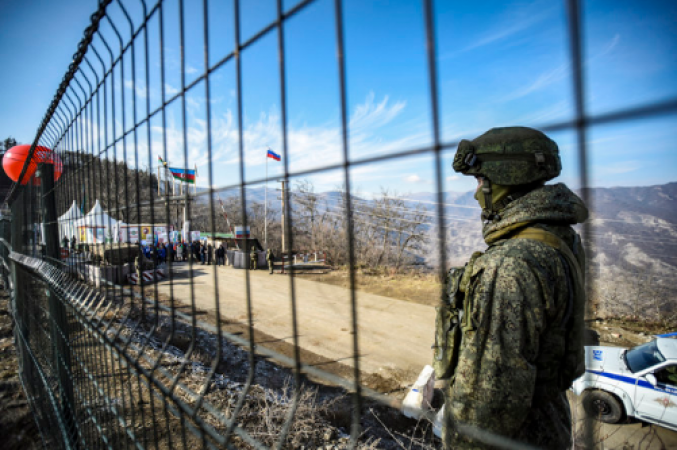
Moscow: In a concerning development in the South Caucasus, Russia summoned the Armenian ambassador on Friday to express its dissatisfaction with what it considered "unfriendly steps."
This diplomatic encounter came as tensions in the region surged, primarily due to ongoing disputes over the Nagorno-Karabakh region.
Within hours of Russia's diplomatic protest, Armenia's foreign ministry released a statement indicating its willingness to resolve disputes with Azerbaijan regarding Nagorno-Karabakh.
Also Read: Physiotherapy: A Vital Tool in Arthritis Management and Prevention
This region has been a focal point of conflict, witnessing two wars over the past 30 years. However, notably absent from Armenia's statement was any reference to the complaints raised by Russia.
On the other side, Azerbaijan's foreign ministry issued a series of statements, asserting that Armenia was posing a significant threat to regional stability by supporting separatist movements in Nagorno-Karabakh.
The Azeri Foreign Ministry conveyed, "Armenia pursues one goal: to sustain separatism in the territory of Azerbaijan through all possible ideological, political, military, financial, and other means."
Also Read: Techniques to Help Manage and Alleviate Asthma Symptoms
The situation escalated further when Armenia and Azerbaijan accused each other on Thursday of moving troops closer to their shared border. This exchange of accusations has only heightened the already precarious situation in the region.
Russia's concerns and protests extend beyond the Nagorno-Karabakh dispute. In addition to the Nagorno-Karabakh issue, Russia expressed displeasure with Armenia for its recent actions. Firstly, Russia voiced its dissatisfaction with Armenia's decision to join the International Criminal Court, which has issued an arrest warrant for Russian leader Vladimir Putin.
Secondly, Russia took exception to Armenia hosting a military exercise with the United States, seen as a provocative move by Moscow. Additionally, a humanitarian visit to Ukraine by the Armenian prime minister's wife drew ire from Russia.
It is essential to note the significance of Russia's role in Armenia's defense. Armenia hosts a Russian military base and relies heavily on Russia for defense supplies.
However, in an interview published recently, Armenian Prime Minister Nikol Pashinyan criticized Armenia's policy of relying solely on Russia for security guarantees, referring to it as a strategic mistake.
Pashinyan noted that Moscow, preoccupied with its conflict in Ukraine, had been unable to fulfill its security commitments in the South Caucasus and was gradually reducing its role in the region.
Nagorno-Karabakh, historically recognized as part of Azerbaijan, has a predominantly ethnic Armenian population. Armenian forces captured territory around Nagorno-Karabakh during the dissolution of the Soviet Union in the 1990s.
Still, Azerbaijan managed to retake these areas during a six-week conflict in 2020, ultimately brokered by Russia. However, efforts to secure a lasting peace in the region have proven unsuccessful to date.
Armenia has voiced grievances about the Russian peacekeeping mission overseeing the 2020 truce, alleging that it has failed to address the Azerbaijani blockade of Nagorno-Karabakh.
Additionally, Armenia has openly questioned its continued membership in the Collective Security Treaty Organization (CSTO), a Russia-led military alliance of six former Soviet republics.
Despite these challenges, Moscow remains steadfast in its assertion that it will remain the primary guarantor of security in the Caucasus. The region's stability is of paramount importance to Russia's strategic interests.
Also Read: G20 Summit: Delighted to Welcome EU President Ursula von der Leyen, Marks PM Modi
In a noteworthy gesture, a foreign policy adviser to Azerbaijani President Ilham Aliyev conveyed to Reuters that Azerbaijan was prepared to allow Red Cross aid from Armenia into Nagorno-Karabakh if Red Crescent aid from Azerbaijan was simultaneously permitted to enter the region.
This could potentially serve as a humanitarian bridge between the two countries and a sign of their willingness to engage in constructive dialogue amidst ongoing tensions.
As the situation in the South Caucasus continues to evolve, it remains a region of significant concern for global stability, with the actions and policies of Armenia, Azerbaijan, and Russia carrying substantial implications for the future of Nagorno-Karabakh and the broader region.